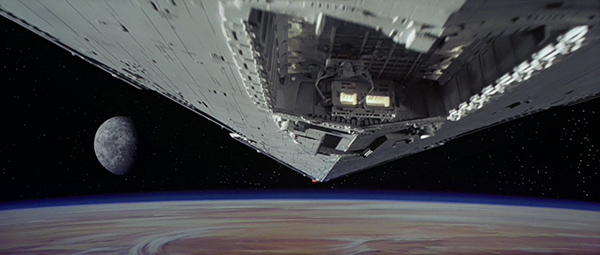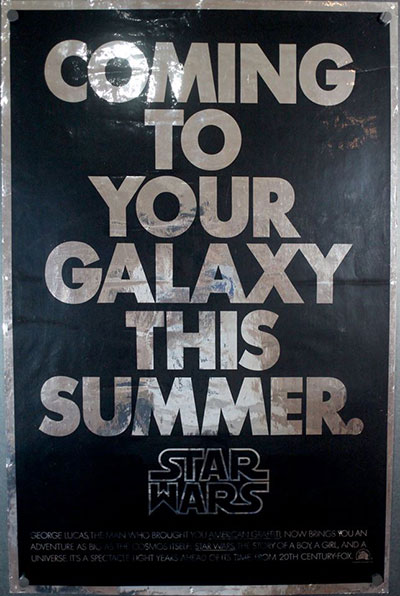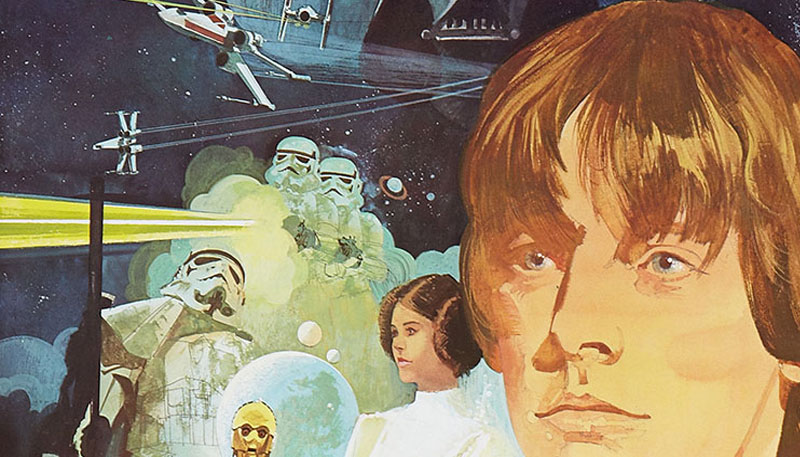The only other thing in my lifetime I’ve seen that even comes close to what Star Wars is and was is maybe Harry Potter, and even still it doesn’t even quite compare.
I’m fond of my anecdote about the kid on the message board in 2002 that proclaimed recent-hit Spider Man as ‘our generation’s Star Wars’ (how’d that turn out, by the way?) without really understanding what he was talking about. While I can certainly understand that desire to be part of the kind of seismic culture shift that Star Wars brought about, its simply something that can’t be manufactured.
Star Wars wasn’t a movie a bunch of people went to. It wasn’t a hit flick that people enjoyed once or twice and then forgot about 3 weeks later when the next summer tentpole dropped. People saw other movies that summer, the summer of Burt and his Trans Am, but they’d circle back to Star Wars more than a few times. Again and again. It became both an addictive way to spend a couple hours and a badge of Wonka Bar honor: ‘how many times did *you* go?’
It wasn’t just popcorn, cutting edge effects, and escapism fueling this popularity. It was a mix of things, primarily timing. After years of historic malaise, anti-heroes, loss of faith in institutions and just plain old cultural hangover from the 60s, by 1977 people were ready for simple myths about inherent Good again. The ground was so dry that it couldn’t help soak up Star Wars’ basic heroic themes by the gallon.
It’s trite, but people wanted to be inspired again. This is a story everyone has told millions of times already so I won’t bore you with another, but it really did matter that Lucas’ film threaded that needle so perfectly. It managed to establish a cruel world while providing just enough oxygen in it for idealism to form and grow and in 1977 that was sorely needed.
We had had years of complex and nuanced narratives about the evil that men do (often at their own expense with viewers chasing the wrong side to root for amongst all the grey) and we probably were thirsty to reboot all that back to its most potent and simple forms: Joseph Campbell, hero’s journey, all the stuff you’ve heard a million times before.
I’m not entirely sure if I really buy that Lucas planned this all out in advance, as his rationales have shifted over the years depending on who he’s responding to at the time, but the *effect* of what he gave us is still the same: He gave us a new mythology for a multi-media world. And it stuck. It was, whether by accident or intent, the perfect formula for modern myth: finite enough to become a media product, vast enough in potential to become something everyone could play in and contribute to.
That’s why everything changed on May 25, 1977.

And if you weren’t there, you really can’t know what that sentence means. Star Wars wasn’t Guardians of the Galaxy ’77 (which is not to impugn GOTG for not being something that it can’t, regardless of quality) so much as a new kind of cultural experience in the commons.
It’s something everyone saw, everyone knew, everyone referenced. By December, your grandmother knew who Darth Vader was and likely knew who Grand Moff Tarkin was as well. It wasn’t just the toys you bought and the comics you read, it was the comics you *drew* and the stories you wrote, and the plays you put on, and the archetypes you adopted and tried to model facets of yourself after. It was a new common mythology that called you to participate and absorb its lessons.
40 years later those lessons are as potent and necessary as ever.

—jason malmberg
Flommist Jason Malmberg is a simple man who believes in brown liquor and small dogs. He also makes art sometimes. Copyright © 2017 Jason Malmberg.
PLEASE SUPPORT FLOMM
TIPS + DONATIONS DISCREETLY ACCEPTED
















